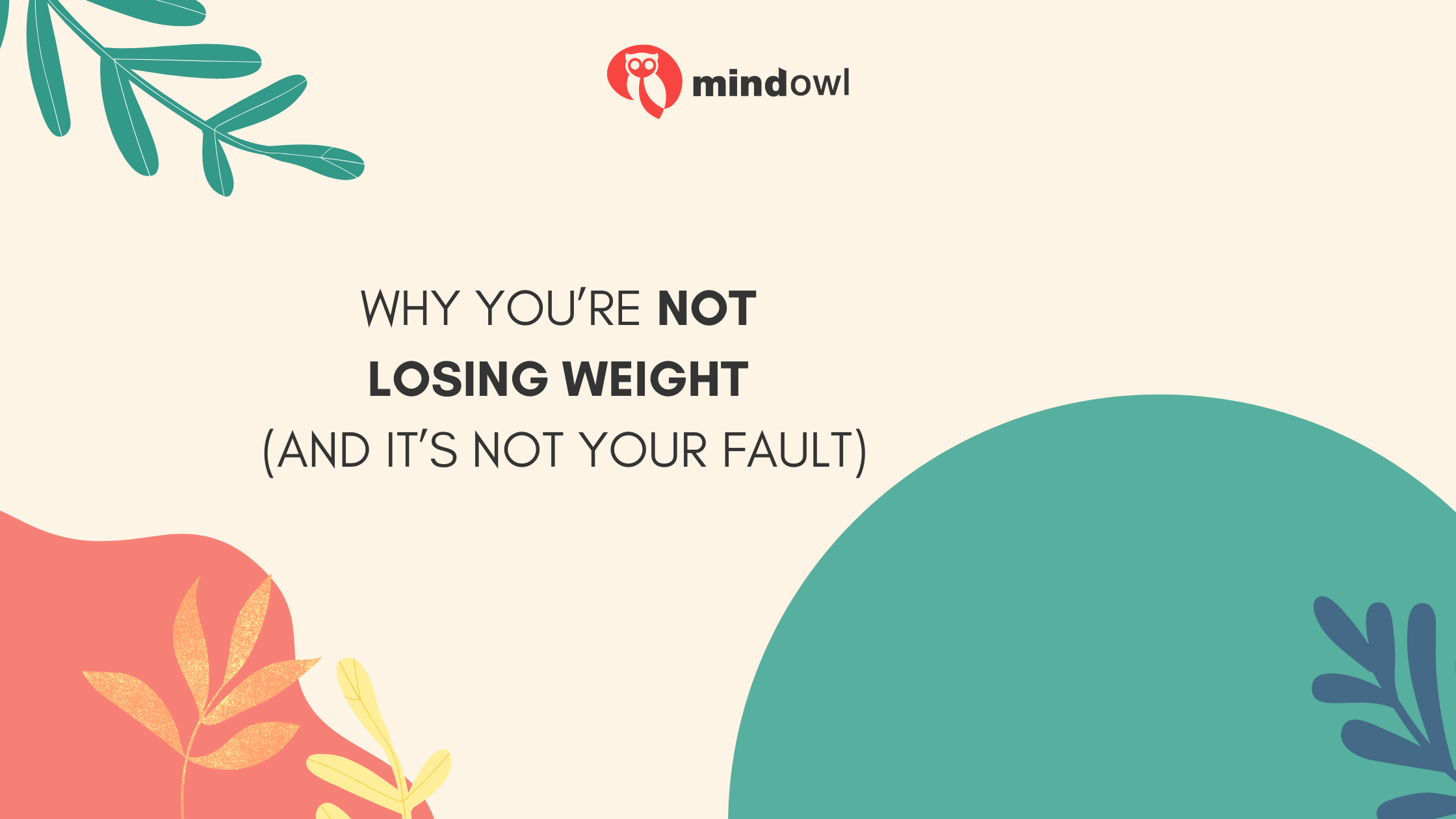Let’s just say it out loud: weight loss advice is exhausting. Eat clean. Cut carbs. Do cardio. Skip breakfast. Count macros. Drink green things. Then, when it doesn’t work, the blame often falls on your shoulders—as if your body missed the memo.
But what if the real reason has nothing to do with motivation or willpower? What if there are valid, fixable reasons your body is holding on to weight—and you’re not even aware of them?
This is where medical weight loss changes the script. By understanding how medications like semaglutide for weight loss work, alongside testing for metabolic and hormonal factors, people finally get answers that make sense. It’s not about shortcuts. It’s about insight.
Let’s break down some of the most overlooked reasons your scale might be stuck—and why it’s not your fault.

Photo by Ketut Subiyanto from Pexels
Your Hormones Might Be Working Against You
Hormones are your body’s chemical messengers. When they’re out of balance, everything from sleep to hunger to energy feels off. For many people, hormones are quietly sabotaging their weight loss goals.
For example, high levels of cortisol (your stress hormone) can lead to fat storage—especially around the belly. Low thyroid function slows your metabolism down to a crawl. And insulin resistance can make it almost impossible to lose fat, no matter how “clean” you eat.
What makes this tricky is that most people don’t know their hormones are off. They chalk it up to age, stress, or bad luck. That’s why medically guided weight loss programs often include lab work—to look under the hood, so to speak.
Your Metabolism Isn’t Broken—But It May Be Burned Out
Metabolism gets blamed for a lot. “Slow metabolism” is the go-to phrase when diets fail. But your metabolism is more than a buzzword—it’s a complex system controlled by your body’s chemistry, history, and current habits.
Extreme dieting, for example, can teach your body to conserve energy. That’s not a flaw; it’s survival. If you’ve been on and off diets for years, your body may have adapted to do more with less, meaning fewer calories burned at rest.
This is where a structured plan makes a difference. Medical providers can assess your basal metabolic rate (BMR), body composition, and even how your muscles and fat tissues respond to different foods. With this information, they can guide you toward a strategy that works with your metabolism—not against it.
Medications Could Be Slowing You Down
Surprise: not all weight struggles are about food. Certain prescription medications can quietly lead to weight gain or make fat loss harder.
Some common culprits include:
- Antidepressants (like SSRIs)
- Birth control pills
- Steroids
- Beta-blockers
- Antipsychotics
This isn’t about blaming the meds—you take them for a reason. But understanding the side effects means you can have smarter conversations with your provider. In some cases, adjusting dosage or switching prescriptions can make a difference. In others, a weight management plan that works around these meds is key.
Sleep, Stress, and That Constant “Wired and Tired” Feeling
Let’s be real: modern life doesn’t exactly support weight loss. You’re juggling work, family, screens, and stress—while trying to sleep well, eat clean, and maybe squeeze in a workout.
Chronic stress messes with your hunger cues, floods your body with cortisol, and makes processed food even more tempting. Poor sleep affects your brain’s ability to regulate appetite and decision-making. Basically, your body starts craving quick hits of energy—and you’re not reaching for kale chips.
This is why sustainable weight loss isn’t just about calories in, calories out. It’s about supporting your body with recovery, rest, and routines that keep your nervous system calm and regulated.
Not All Calories Are Equal (And Not All Bodies Process Them the Same)
Calories are simple math, right? Eat less than you burn, and the weight comes off.
Except… not really.
Different foods affect your hormones, satiety, and metabolism differently. A bowl of oats and a handful of jellybeans might have similar calories—but they don’t hit your body the same way. Same goes for individual response: some people process carbs quickly, others don’t. Some feel full after protein, others don’t.
That’s where personalized care matters. A good medical provider won’t just hand you a meal plan—they’ll look at your glucose response, your cravings, and how your energy behaves across the day. It’s not about “discipline.” It’s about biology.
You’ve Been Set Up to Fail by Fad Diets
Let’s pause here. If you’ve bounced between keto, juice cleanses, fasting, and low-fat everything, it’s not a lack of commitment—it’s the diet industry working against you.
Most popular diets are designed for short-term success. They rely on water loss, calorie slashing, or gimmicks. They rarely teach you what your body actually needs to feel safe, satisfied, and supported.
Medical weight loss, on the other hand, focuses on long-term support: clinical monitoring, sustainable routines, and medications (when appropriate) that improve how your body responds to hunger, fat storage, and insulin.
You’re not failing the diets. The diets are failing you.
Tools Like Semaglutide Aren’t “Cheating”—They’re Science
There’s often shame around using medication to lose weight. But let’s reframe that.
If your pancreas wasn’t making enough insulin, would anyone judge you for using it? Of course not. If your body has trouble regulating appetite or blood sugar, using a medication like semaglutide is just as valid.
Semaglutide works by mimicking a natural hormone that helps regulate hunger and glucose levels. It doesn’t “melt fat”—it helps your brain and gut work in sync. When combined with behavioral coaching, nutrition support, and monitoring, it becomes a powerful part of a bigger puzzle.
Weight loss is not just a willpower issue. It’s a biology issue. And biology responds to treatment.
The Mental Load of Weight Loss is Real
One thing that’s often ignored in weight loss conversations? The emotional and cognitive strain of always “trying.”
Feeling like you have to constantly monitor, restrict, and self-correct takes up mental space. It’s draining. And when efforts don’t pay off, that emotional toll deepens. Shame kicks in. Motivation dies.
That’s why compassionate, expert-led weight loss support isn’t just about the physical outcome. It’s about lightening the mental load. Knowing that someone sees the full picture—and is helping you fix it—is relief in itself.
What Medical Weight Loss Really Looks Like
If this is all new to you, here’s a quick look at how medical weight loss usually works:
- Initial Consultation: You meet with a clinician who listens to your story—not just your stats.
- Lab Testing: Hormone panels, metabolic markers, or other diagnostics may be recommended.
- Nutrition + Lifestyle Strategy: Not a restrictive plan, but one that fits your actual life.
- Medication (if needed): Options like semaglutide, B12 injections, or appetite-regulating compounds may be introduced.
- Ongoing Support: Follow-ups, tweaks, and encouragement—not just a one-and-done visit.
It’s a whole-body, whole-person approach. And it works.

Photo by Julia Larson from Pexels
Final Thought: You Deserve a Plan That Doesn’t Blame You
If your weight loss journey has felt like a loop—try, stall, shame, repeat—you’re not alone. And you’re not broken.
Bodies are complex. So is biology. The real breakthrough comes not from pushing harder, but from working smarter—with science, support, and solutions that honor your individuality.
Losing weight isn’t about becoming someone else. It’s about helping your body feel safe enough to let go.
MindOwl Founder – My own struggles in life have led me to this path of understanding the human condition. I graduated with a bachelor’s degree in philosophy before completing a master’s degree in psychology at Regent’s University London. I then completed a postgraduate diploma in philosophical counselling before being trained in ACT (Acceptance and commitment therapy).
I’ve spent the last eight years studying the encounter of meditative practices with modern psychology.

